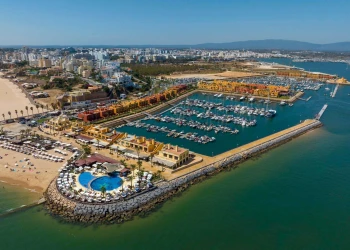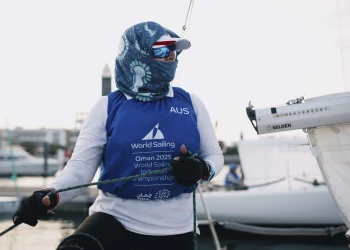
Toni Vodisek
Medal deciding formats, three ways of winning
Nearly 40 years ago at the Los Angeles 1984 Games, the Olympic Regatta consisted of a total seven races across a week.
One race per day, lasting up to two hours or more. If you hit the windward mark you were required to retire. No opportunity to take a penalty 360 turn and carry on racing. The format rewarded the risk-averse, consistent sailor who was best at playing the percentages.
The Olympic formats have changed a lot over the past decades. In the 1990s the race courses were made radically shorter and sailors would compete in two or even three races in a day. But the fundamental goal of accruing minimum points across a series of races endured. Solid, consistent performances across the regatta is the way to secure a place on the podium.
If a sailor or a team managed to put in a really dominant performance they might even win the regatta with a race to spare. If you did win early, it was expected that you did not take part in the final race for the other medals, for fear of ruining someone else’s regatta.
The Medal Race
For Beijing 2008, the Medal Race was introduced. A double-points, non-discardable concluding race for the top 10 qualifying boats. Even if you’ve already won the gold medal, you’re still required to make your best efforts to sail around the course.
This final-day drama more likely. One of the best examples of a Medal Race that worked was in the ILCA 6 climax at London 2012.
It was a straight who-beats-who battle between four sailors from Ireland, Belgium, China and The Netherlands. In the end it was Lijia Xu, aka Lily, who came out on top for China, winning the nation’s first Olympic gold in a sailing dinghy.
On other occasions, however, the Medal Race changes little. On Wednesday in The Hague we saw three gold medals wrapped up with a race to spare in the 470, 49er and 49erFX.
New final day formats
Enter the two new foiling board fleets – Formula Kite and iQFOiL. Not just faster and more frenetic than any previous forms of Olympic sailing, but introducing new format ideas as well.
There are close similarities between the two new Medal Series formats but some important distinctions too.
Formula Kite
The thing to bear in mind with Formula Kite is that it takes three Match Points to win in the four-rider Final. The showdown in the kites comes down to just four riders.
Winner of Gold Fleet, the yellow bib wearer, goes straight through to the Final with two Match Points. Runner-up in Gold Fleet, the blue bib wearer, goes straight through to the Final, but with just one Match Point. These two are on standby to find out who else will be joining them from the Semi Finals.
Meanwhile the other eight riders in the top ten go into two Semi Finals. The same three Match Points rule applies. Third and fourth go through as top seed in their respective Semi Finals. They carry two Match Points into the Semis, and fifth and sixth go in carrying one Match Point each. The rest go in with nothing. Which means they have the biggest mountain to climb, they have to win three races to break through into the Final.
Quite often the yellow bib wearer will close out the Final in just one race, but there are also times when riders break through from the Semi-Final and sail out of their skin to win three races and take the title from further down the field.
iQFOiL
The iQFOiL format runs a simpler, but more sudden-death elimination process. As in Formula Kite, the winner of Gold Fleet carries the yellow bib straight through to a three-board Final. So the winner of the week of racing knows that a medal of some colour is guaranteed.
Meanwhile, the second and third ranked boards from Gold Fleet know they have a spot in the four-board Semi Final.
Boards ranked fourth to tenth go into a sudden-death Quarter Final. Whoever finishes in the top two qualifies for the Semi Final.
The top two from the Quarter Final join the second and third ranked boards in the sudden-death Semi Final. Whoever finishes in the top two of the single-race Semi Final qualifies for the three-board Final.
Now we have our three finallists in the winner-takes-all, single-race Final. First across the finish line takes gold, second takes silver, and bronze to the third and last board. It’s quick and decisive, and the closest we have seen the sport of Olympic sailing come to gladiatorial combat.





